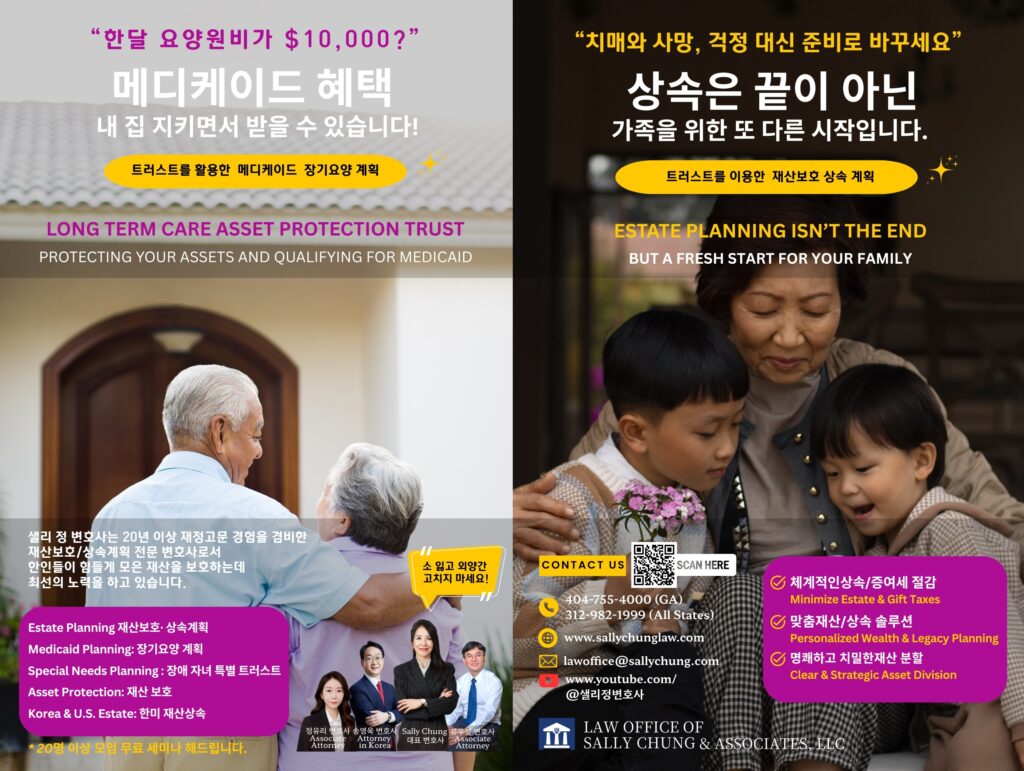
04 Oct Signing Without Understanding Can Be Dangerous
Admitting a beloved spouse or parent into a nursing home is one of the most emotionally difficult and stressful experiences a family can face. During this overwhelming time, families are often handed stacks of complex documents to sign, adding confusion to an already painful situation.
Many families, anxious to secure a bed quickly, make the mistake of signing it blindly without proper review. But rushing to sign can lead to serious consequences, including unexpected financial liability and the unintentional waiver of important resident rights. Always have the agreement reviewed by a qualified professional before signing.
For example, Mr. Park had to admit his mother to a nursing home after her dementia progressed beyond his ability to care for her. The facility assured him everything would be taken care of and asked him to sign the admission paperwork. Trusting the staff, he signed without legal advice. The nursing home even helped him apply for Long-Term Care Medicaid.
However, six months later, Mr. Park received a denial letter from Medicaid followed by a nursing home bill demanding he pay over $100,000 in unpaid fees. What Mr. Park didn’t realize was that the admission agreement was written by the nursing home’s own attorneys, meaning the contract was naturally drafted to favor the facility, not the resident.
One of the key clauses to carefully review in the Nursing Home Admission Agreement is the Private Pay Requirement. Some nursing homes attempt to require residents to pay out-of-pocket during the Medicaid application process. However, it is illegal to demand private payments from residents who are likely to qualify for Medicaid while their application is pending. Some contracts may also try to force residents to accept a Medicaid denial without question. This, too, is not allowed.
The reason you must read these agreements carefully is because they often contain illegal or misleading clauses. If possible, it’s best to sign the documents after the resident is already admitted. If you must sign beforehand, you have the right to request that these problematic clauses be removed.
One of the most commonly overlooked and risky clauses is one that holds family members financially responsible for nursing home costs. If a facility asks a family member to sign as a “Responsible Party”, do not sign in that capacity.
Under federal law, nursing homes cannot require third parties to personally guarantee payment of nursing home costs. Refusing to agree to such clauses cannot be used as a reason to deny admission. However, many Korean families unknowingly sign these documents “voluntarily”, believing they are simply helping their loved one. Later, when Medicaid is denied, they come to an attorney, only after receiving an enormous nursing home bill. By then, it’s often too late to fix the mistake.
All documents should be signed by the resident themselves whenever possible. However, if the resident is incapacitated and a family member must sign, they must do so in their legal capacity as a Power of Attorney Agent, not in their personal capacity.
This is exactly why it is so important to prepare legal documents like a Trust and Power of Attorney in advance while you or your loved one is still healthy.


